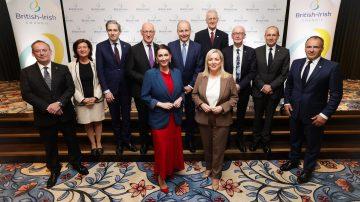Guernsey’s Health and Social Care department (HSC) began preparations to manage the impact of COVID-19 in the Bailiwick in January 2020.
These unprecedented times dealing with a new virus, with unknown consequences, has
resulted in significant additional capital and revenue expenditure for 2020.
HSC has, today, published the COVID-19 related spend incurred in the first 6 months of 2020
as follows:
Revenue – just over £3 million across all categories of spend
- c. £1m PPE – including 6 months forward stock
- c. £200k reagents for the testing equipment
- c. £1m support to Primary Care – including the Ambulance Service)
- c. £645k COVID-19 essential pay costs (Agency and Bank staff & Overtime incl Public Health)
- c. £200k emergency works by the HSC Estates Team – Hot ICU etc
- various smaller items making up the balance
Capital – HSC have incurred £715k of unavoidable costs to respond to COVID-19. c.£526k of this relates to test equipment for the Pathology lab, within which:-
- c.£214k for ‘extractors’
- c.£60k for ‘amplifiers’
- c.£200k for ‘robots’ to automate the human elements of the production
- c.£52k (the balance) for associated smaller kit across Pathology
An example of the unplanned costs incurred by HSC is the testing costs for the virus and for
the presence of antibodies. As announced last Friday, the ongoing costs of increasing testing
capacity planned for phase 5c has been forecast as £3.7m. However, the fact that Guernsey has
the facilities to process these tests on-island, and do not have to send them to the UK,
represents a significant cost saving for the Bailiwick.
HSC says that they have been open and transparent with the community regarding all aspects of COVID-19 related activity. Detailing the costs associated with COVID-19 and sharing the information continues this approach.
Deputy Soulsby, President of the Committee for Health and Social Care said: “A spend of nearly £4m on COVID-19 related costs for HSC is a considerable amount – particularly when it was unforeseen and, therefore, not budgeted. However, it is important to note that purchasing of the testing equipment which enabled testing on Island reduced the costs of molecular (swab) testing for SARS-CoV-19.
It was decided not to invest in a Nightingale Hospital whilst the impact was based on theoretical modelling, and before on-island testing was established. The States of Guernsey decided to accommodate any potential increase in patient numbers by establishing plans for temporary extensions to the hospital building on the PEH campus”.
Excluding the unexpected costs incurred for COVID-19 activity, HSC is currently forecasting a
general underspend of its budgeted allocation for 2020 – resulting in a lower net costs
overall.














